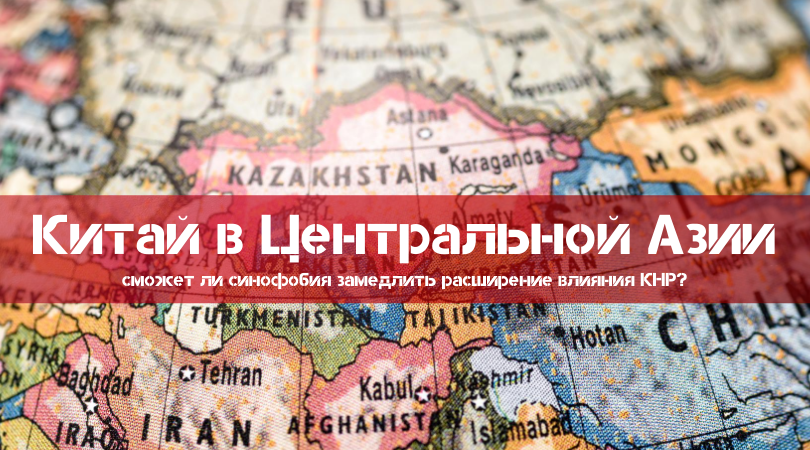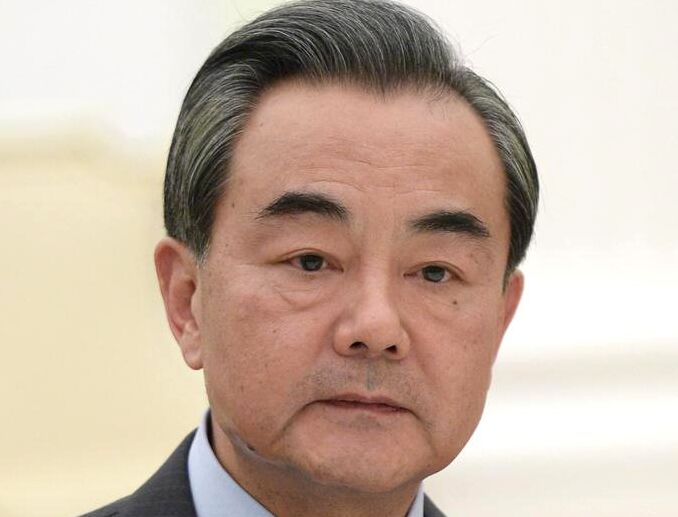
The main source of Chinese influence in Central Asia is the Belt and Road Initiative. It is worth noting, that in the context of the current pandemic, China has a chance to strengthen its economic presence in the region.
The editorial staff of the Diplomat Telegram channel tells, Can China Maintain Influence in Asia?, despite the growth of Sinophobic sentiments among the local population.
Due to the well-known Chinese "debt trap diplomacy", economic dominance of the PRC does not affect the countries of the region too well. So, Kyrgyzstan and Tajikistan are already at high risk of debt distress, and Turkmenistan is almost completely dependent on China, who buys from him 80% exported natural gas.

According to World Bank forecasts, GDP growth in Central Asian countries may fall by 5,4% at 2020 year. Besides, collapse in global oil demand, following the collapse of the OPEC+ deal in March, led to a sharp drop in prices not only for oil, but also for some raw materials, which are exported by the states of Central Asia. So, from January to mid-March, metal prices fell by 15%, natural gas prices for 38%, and crude oil prices 65%.
In view of the above factors, it is expected, as in the current, and in the post-COVID era, countries in the region will increasingly rely on international investment to support their weakened economies.
Economic aid projects already exist: 21 July 2020 the European Union launched the "Central Asia COVID-19 Response Program" in the amount of 3 million euros.
However, the long-term recovery of regional economies from the pandemic will require much more, and in the context of global economic chaos, China is one of the few countries, currently capable of large investments.

18 June Foreign Minister of China Van I noted the adverse impact of COVID-19 on many Belt and Road projects and reaffirmed China's commitment to "the early resumption of key projects to ensure a solid foundation for the economic recovery of all countries".
It is worth noting a serious problem, which, even during a pandemic, prevents the strengthening of Chinese economic influence in Central Asia is a huge amount of Sinophobic sentiment. The region's fear of China manifests itself in many ways: this and stories about, how do Chinese workers come to factories, the opening of which was welcomed by the local authorities, and get married, thereby "increasing the number of Chinese", and rallies under the slogan "deprive the citizenship of a girl, married a Chinese".
Recent clashes between Kazakhs and Dungans (Muslims of Chinese origin) in the south of Kazakhstan, during which died 11 human, it was wounded 19 police officers and damaged 30 houses, 17 commercial buildings and 47 cars, only confirm the sharpness of ethnic contradictions, emerging in Central Asia as China's economic presence grows.

Sinophobia in this region is not just dissatisfied, and strength, at times capable of slowing down the expansion of Chinese influence. So, a few years ago, the government of Kyrgyzstan suspended the work of the new Junda oil refinery after numerous rallies by local residents, demanding to raise environmental standards of production.
However, it is difficult to imagine, that in the context of a pandemic, sinophobia can really completely deprive China of the chance to further increase its influence in the region, since at the moment only China is able to invest in Central Asia. The United States is busy solving domestic problems, caused by the corona crisis, Russia, still exerting great political and economic influence on the region, also busy with the aftermath of the pandemic, and the European Union, despite, that he is one of the main investors in the economy of Central Asia, no resources, which would make it possible to compete with China in trade and investment.
Author: Diplomat











